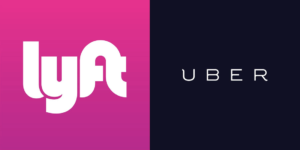 The National Bureau of Economic Research has found that Uber and Lyft drivers discriminate against black riders and cheat women. In a not so surprising announcement MIT, Stanford University and the University of Washington researchers announced blacks are more likely to wait longer or have their Uber ride cancelled altogether. Researchers also found that women were driven on longer and more expensive routes than men.
The National Bureau of Economic Research has found that Uber and Lyft drivers discriminate against black riders and cheat women. In a not so surprising announcement MIT, Stanford University and the University of Washington researchers announced blacks are more likely to wait longer or have their Uber ride cancelled altogether. Researchers also found that women were driven on longer and more expensive routes than men.
Technology is not color blind nor gender neutral. A black sounding name can eliminate you from technology enabled services like Uber and Airbnb and jobs. Companies like AirBnB have been sued for having users who openly discriminate against minorities. (See also: Race and Technology: Airbnb Steps Up Fight Against Racism.)
For those not familiar with Uber and Lyft these are mobile apps that allows users to request rides from their smartphones. Both companies have experienced explosive growth challenging taxi companies in some major cities. According to Uber and Lyft their technology is less discriminatory when compared to taxis. Both companies use apps that match passengers with drivers using an algorithm rather than hailing cabs on the street. But again, not surprisingly, some discrimination is still happening.
The research was performed by sending riders to Seattle and Boston. These riders then hailed about 1,500 rides over a of six week period. Researchers discovered a “pattern of discrimination” in Seattle where black passengers had to wait longer than white passengers. At times the wait was as much as 35 percent longer. Research also found that if you had a black sounding name in Boston your ride was cancelled more than twice as often as passengers with white-sounding names.
For women the situation was not much better. The research revealed that women were more likely to be overcharged by drivers. The study showed that drivers started the trip early or ending it later after their female rider was dropped off. To keep costs under control routes used in the study were pre-planned so as not to exceed more than two miles. One female study participant reported the driver going through the same intersection three times during the trip. Another reported being was taken on the freeway passing several exits although her drop-off point was only a mile away. Women participating in the study also reported drivers becoming “chatty” while taking them on elongated routes.
In response to the study to Bloomberg Technology a spokesperson for Uber defended the company’s record saying, “Discrimination has no place in society and no place on Uber. We believe Uber is helping reduce transportation inequities across the board, but studies like this one are helpful in thinking about how we can do even more.”
Breaking It Down
Discrimination is a fact of life, especially for black people. Hearing of technology enabled services like Uber and AirBnB shunning black customers does not surprise anybody who is black and aware. Why? Because we are not dealing with technology alone but with people who use the technology. And people will discriminate, period. Why? Because we have all had negative experiences with people who are not like us. And that creates a negative stereotype. So all we can really do is encourage companies to enforce upon those who use their technology to avoid discrimination it if possible. There are ways to do this including ejecting those that violate the policy. But again we are dealing with people and this is never easy. Now, I have no problem with people who are cautious about who sleeps under their roof. Unlike an Uber ride, which can be dangerous at times, inviting an unknown person into your home can be a deadly vulnerability. This is where everything you own is, where you eat and sleep, your sanctuary. Yes, it is a dangerous decision. But do not make such a decision if you are not aware that anyone can come through the door. And don’t assume that you are in danger if that person is black. Some people fear black people just because they are black. Black people fear how they will be treated in society just because we are black. Now what do we do?
